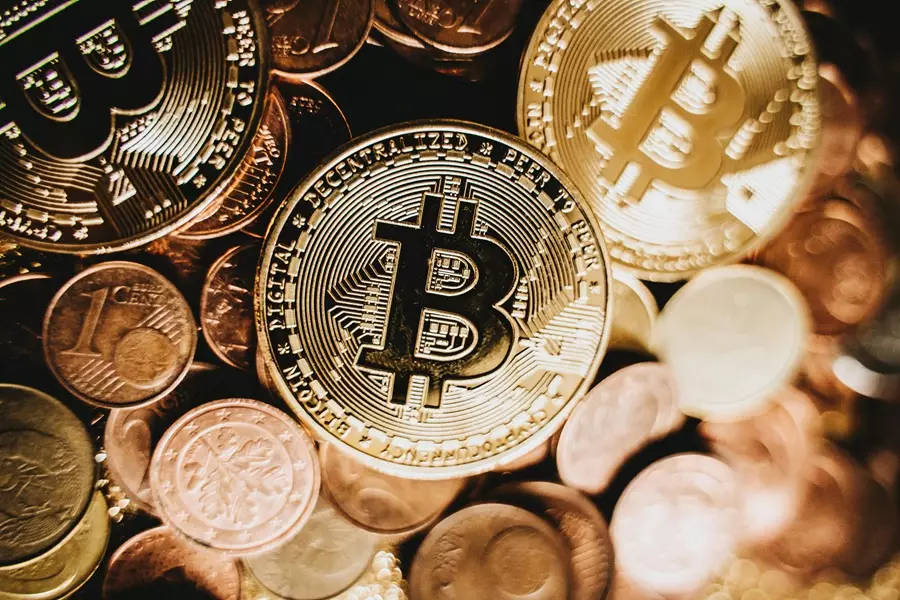While cryptocurrency enthusiasts tout digital assets as the dawn of a financial revolution, a skeptical examination reveals a tapestry of overhyped promises and underlying vulnerabilities. The narrative promoted by many advocates, including writers and influencers aligned with the progressive yet centered-right spectrum, emphasizes efficiency, transparency, and democratization. But does this narrative withstand rigorous scrutiny? The answer is complex. Cryptocurrency, despite its potential, operates in a landscape fraught with risks, distortions, and systemic flaws that often overshadow its purported benefits. It’s crucial not to buy into the myth that blockchain technology alone guarantees a fairer financial future. Instead, it warrants a cautious, balanced perspective that recognizes the technology’s limitations while appreciating its possible contribution to a more competitive and accountable system.
Distorting the Reality of Financial Equality
One of the most persistent falsehoods propagated by crypto advocates is that digital assets inherently democratize finance. They promise a borderless, accessible alternative to traditional banking, claiming to empower the unbanked and underrepresented populations. Yet, the reality remains far more nuanced. Cryptocurrency markets are predominantly controlled by a handful of whales and institutional players whose enormous holdings can sway prices and manipulate markets with relative ease. For average investors, the promise of financial inclusion is belied by the extreme volatility and speculative nature of most tokens. Far from leveling the playing field, the current crypto ecosystem often reinforces existing inequalities—wealthy actors gain at the expense of novices who lack the knowledge or resources to navigate these complex waters responsibly.
The Mirage of Decentralization
Decentralization, often heralded as the core virtue of blockchain technology, deserves critical evaluation. While technically true that blockchain networks distribute data across nodes, the reality of network control reveals a concentration of power in the hands of major miners, developers, and core teams. Large entities with substantial computational resources dominate governance, thus undermining the notion of true democratization. Furthermore, many projects cloak centralized control under the guise of decentralization to attract user investment, fostering a false sense of security among followers. This illusion weakens trust in the entire ecosystem and stunts the development of genuinely decentralized and resilient networks. For those interested in fostering a truly equitable digital economy, transparency and accountability must extend beyond rhetoric and into the structural core of these networks.
Regulation as a Necessary Enabler, Not an Enemy
A recurring debate within the industry revolves around regulation—whether it stifles innovation or protects consumers. For center-right liberals who seek a balanced approach, regulation is vital to curb fraud, prevent systemic risks, and establish credibility. Cryptocurrency’s largely unregulated landscape fosters illicit activities, market manipulation, and scams—issues that threaten its long-term sustainability. Recognizing this, advocates should pursue pragmatic regulatory frameworks that safeguard investor interests without throttling innovation. Light-touch regulation, focused on transparency and anti-fraud measures, could bridge the gap between technological advancement and societal safeguard. Instead of viewing regulation as an obstacle, it should be embraced as a necessary step toward mainstream acceptance and stability—crucial for attracting cautious institutional participation and fostering trust.
Environmental and Ethical Concerns: An Unavoidable Reckoning
No critique of cryptocurrency can ignore the environmental impact of proof-of-work blockchains, which consume enormous amounts of energy. Although substantial strides have been made with proof-of-stake and other eco-friendlier consensus mechanisms, the sector still grapples with sustainability issues. For skeptics, environmental degradation and energy waste are legitimate red flags, highlighting the urgency for greater accountability and innovation. Additionally, the speculative bubble and the obsession with quick gains fuel systemic issues like market manipulation and financial malpractices. Advocates must acknowledge these problems without dismissing concerns, emphasizing responsible development and ethical standards—including adopting greener technologies and fostering investor education as priorities for a mature ecosystem.
The Charade of Financial Sovereignty
Finally, it’s important to critique the narrative that cryptocurrency offers absolute financial sovereignty. While decentralization aims to empower individuals, the reality of centralized exchanges, custodial wallets, and regulatory encroachments hampers true independence. Governments and regulatory bodies increasingly seek to exert control over digital assets—potentially undermining the very freedoms digital currencies promise. For individuals who champion personal responsibility, this ongoing tug-of-war raises questions: Are we really gaining freedom, or merely exchanging the control of traditional institutions for a different set of vulnerabilities? For those of us who see the current state of crypto as a work in progress, maintaining a vigilant stance on these developments—and advocating for policies that respect individual agency—is essential.
This critical perspective does not dismiss the potential of blockchain technology but urges the industry to avoid complacency and overconfidence. It calls for honest acknowledgment of limitations alongside measured efforts to improve. Only then can cryptocurrencies evolve into a genuinely resilient, equitable, and trustworthy component of our financial future—rather than a house of cards built on hype, speculation, and unfulfilled promises.

